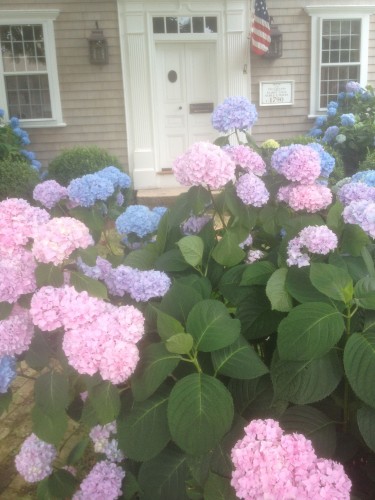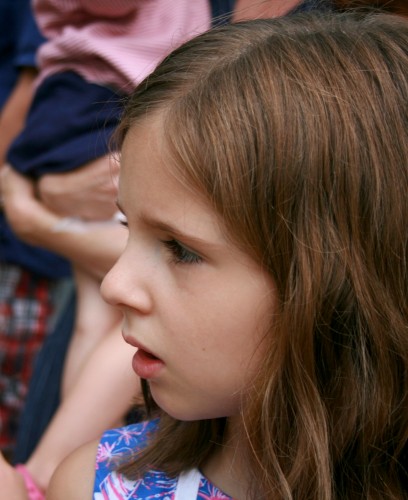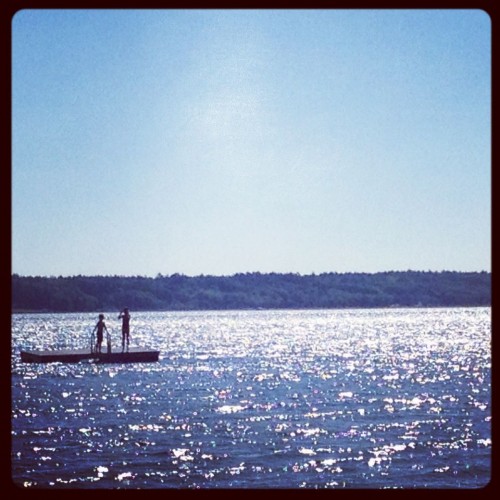
I love hydrangeas. They remind me of the summer in this part of the world, of faded clapboard houses and halyards snapping against masts and our wedding day. I’ve always particularly liked blue hydrangeas, and only recently realized it’s because they are basically the same color as a saturated sunny sky (and, also, as my son’s blue eyes).
But I think there are other reasons I love these flowers so. As Heather commented on my post last week, hydrangeas last and last. They are sturdy and durable flowers. And their colors shift subtly as the season turns forward. The blue gets deeper and then, in August, shifts again, fading to a purplish green. I love tracing the passage of weeks in the changing colors of the flowers in my front yard. That love has a hem of sadness in it, though, because the changes present irrefutable proof of time’s passage.
The thing I love best, though, is the way the composition of a hydrangea’s soil dictates the color it is. As you can see from this photograph (taken down the street from my parents’ house, and upon exclamation by Grace that there were “multicolored flowers!”) sometimes this variation happens within a single bush. This is tangible evidence of the power of terroir. I think often of where I’m from, of the ways the thread of the past glints through the fabric of now. Hydrangeas, blue or pink depending on the pH of their soil, are an irrefutable manifestation of the way the circumstances we grow and live in shape who we are. And this is, I think, the most beautiful thing of all.


